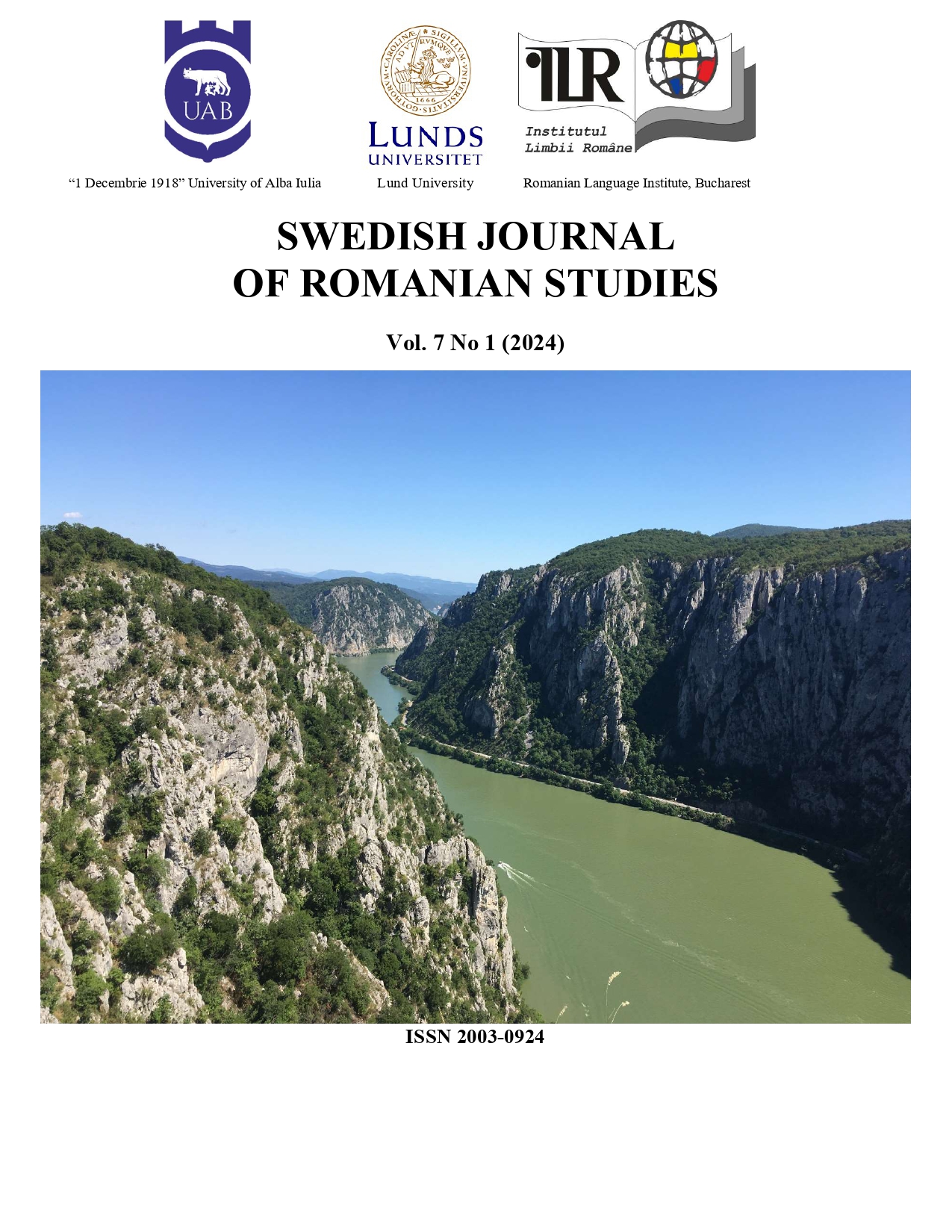Rethinking fieldwork: researching food in the aftermath of lockdown
DOI:
https://doi.org/10.35824/sjrs.v7i1.25984Keywords:
Romanian ethnology, Romanian Food Heritage, field research, Banat, ethnology in time of crisisAbstract
The article raises questions related to field research methodology in a specific context. The authors take into consideration mainly the context of uncertainty, generated by Covid-19 pandemics which forced them to reshape the field research methodology as previously known and commonly used by Romanian ethnologists. The authors provide a brief presentation and analysis of the first steps done as part of what later would become a larger field experience in terms of investigating Romanian food heritage. It relies on five examples represented by five interviews conducted during the Covid-19 pandemic. The interviews that compose the case study have a special value. The negotiation to set up the meetings, the arguments of each of the parties, the conditions in which the discussions were organized are all angles that deserve to be discussed as source of what we might call ethnological motivation. What can determine the people, members of a specific culture, to share their knowledge and their life experience about a certain topic, when the very act of speaking might be a dangerous one? In each of these examples, the informant was responsive when informed that we were conducting research related to local traditions, specific family cuisine, without producing television shows, and without overexposing themselves. We notice the existence of a need to tell, a real duty to tell relevant information about one’s own culture, a vector that characterizes communities just as, for the researcher, there is a work ethic which implies his obligation to make all necessary efforts to find out information.
References
Hedeșan, O. (2008). Doing Fieldwork in Communist Romania. In V. Mihăilescu, I. Iliev, & S. Naumović (Eds.), Studying Peoples in the People's Democracies, II Socialist Era Anthropology in South-East Europe (pp. 21-39). Berlin: LIT Verlag.
Hedeșan, O. (2015). Luai Uzdinu de-amăruntul. Amintirile unei povestitoare prodigioase: Mărioara Sârbu / I looked at Uzdin in details: The memoirs of a prodigious storyteller: Mărioara Sârbu. Timișoara: Editura Universității de Vest.
Hedeșan, O. & Timoce-Mocanu, C. (2023). Réinventer le terrain ethnologique dans le contexte de la pandémie de covid-19 / Reinventing the ethnological field in the context of the COVID-19 pandemic. Transilvania, 11-12, 109-117. DOI: https://doi.org/10.51391/trva.2022.03.06
Hedeșan, O., & Timoce-Mocanu, C. (Eds.). (2021). Multivalent Research about Food. Building the Romanian File. Transylvanian Review, XXX(2).
Institutul Social Banat-Crișana. (1938). Ancheta monografică în comuna Belinț / Monographic research of the village of Belinț. Timișoara: Tipografia Românească Timișoara.
Institutul Social Banat-Crișana. (1939). Monografia comunei Sârbova / The Monograph of Sârbova village. Timișoara: Tipografia Românească Timișoara.
Kilani, M. (1987). L’anthropologie du terrain et le terrain de l’anthropologie: Observation, description et textualisation en anthropologie / The anthropology of the field and the field of anthropology : Observation, description, and textualization in anthropology. Réseaux, Communication – Technologie – Société, 27, 39–78. DOI: https://doi.org/10.3406/reso.1987.1321
Kilani, M. (1994). Du terrain au texte, Sur l’écriture en anthropologie / From field to text, on writing in anthropology. Communications, 58, 45–60. DOI: https://doi.org/10.3406/comm.1994.1878
Mihuț, D. (2023). Dulciuri tradiționale bănățene: Contexte ale unei documentări de teren / Traditional sweets from Banat: Contexts of field research. In M. Ćorković, M. Huțanu, M. Dan, & M. Trajlović-Kondan (Eds.), Limba, Literatura și Cultura Română: Provocări și Perspective (pp.187-200) Belgrade: Faculty of Philology.
Rostás, Z. (2003). Sala luminoasă: Primii monografiști ai școlii gustiene / The Bright Room. The first monographers of Gusti’s School. București: Paideia.
Todorov,T. (1978). Poétique de la prose (choix) suivi de Nouvelles recherches sur le récit / Poetic of prose (selection) followed by new Research on narrative. Paris : Éditions du Seuil.
Downloads
Published
How to Cite
Issue
Section
License
Copyright (c) 2024 Diana Mihuț, Otilia Hedeșan

This work is licensed under a Creative Commons Attribution-NonCommercial 4.0 International License.
Authors who publish with this journal agree to the following terms:
a. Authors retain copyright and grant the journal right of first publication with the work simultaneously licensed under a Creative Commons Attribution-NonCommercial 4.0 International License that allows others to share the work with an acknowledgement of the work's authorship and initial publication in this journal.
b. Authors are able to enter into separate, additional contractual arrangements for the non-exclusive distribution of the journal's published version of the work (e.g., post it to an institutional repository or publish it in a book), with an acknowledgement of its initial publication in this journal.
c. Authors are permitted and encouraged to post their work online (e.g., in institutional repositories or on their website) prior to and during the submission process, as it can lead to productive exchanges, as well as earlier and greater citation of published work (See The Effect of Open Access).

